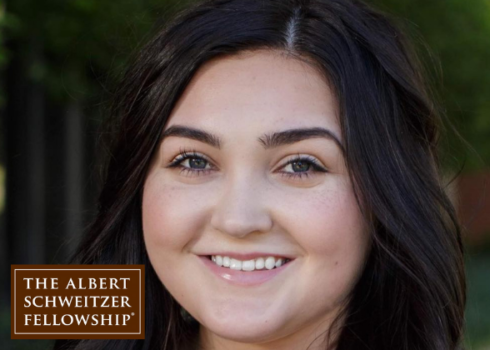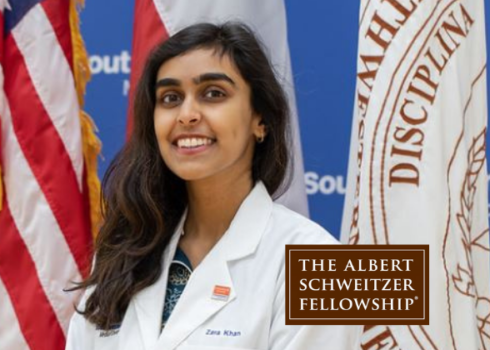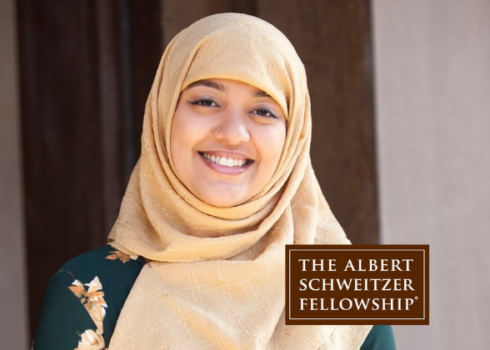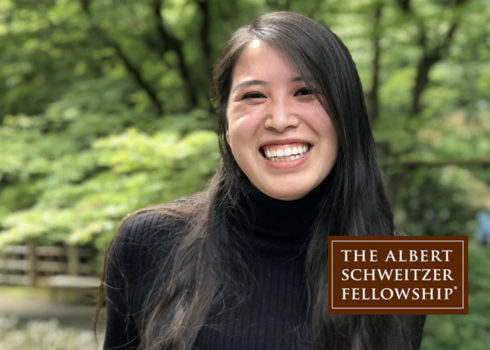Our collective mission to advance the health of the public has been fundamental to the advancement and prosperity of families in our region. This is evident through the work of the Albert Schweitzer Fellowship and it’s talented fellows. 2021 recipient, Nathan Guyton is assisting adolescents with substance use disorders by tapping into his experience as a TCU football player.
In 2015, Southwestern Medical Foundation joined with the Dallas-Fort Worth Schweitzer Fellowship Program (ASF) to bring the innovative service and leadership program to medical and graduate students in the Dallas-Fort Worth area. The Fellowship aims to address local health disparities and the social determinants of health while developing future leaders. It was coined as a nod to the renowned physician-humanitarian and health care hero, Dr. Albert Schweitzer, who continues to inspire the legacy of community service through health care.
We had the opportunity to discuss the inspiring work of some of this year’s DFW Albert Schweitzer Fellows, who continue the spirit of Dr. Albert Schweitzer by investing in our region’s health.
An Interview with Nathan Guyton: Assisting Adolescents with Substance Use Disorders
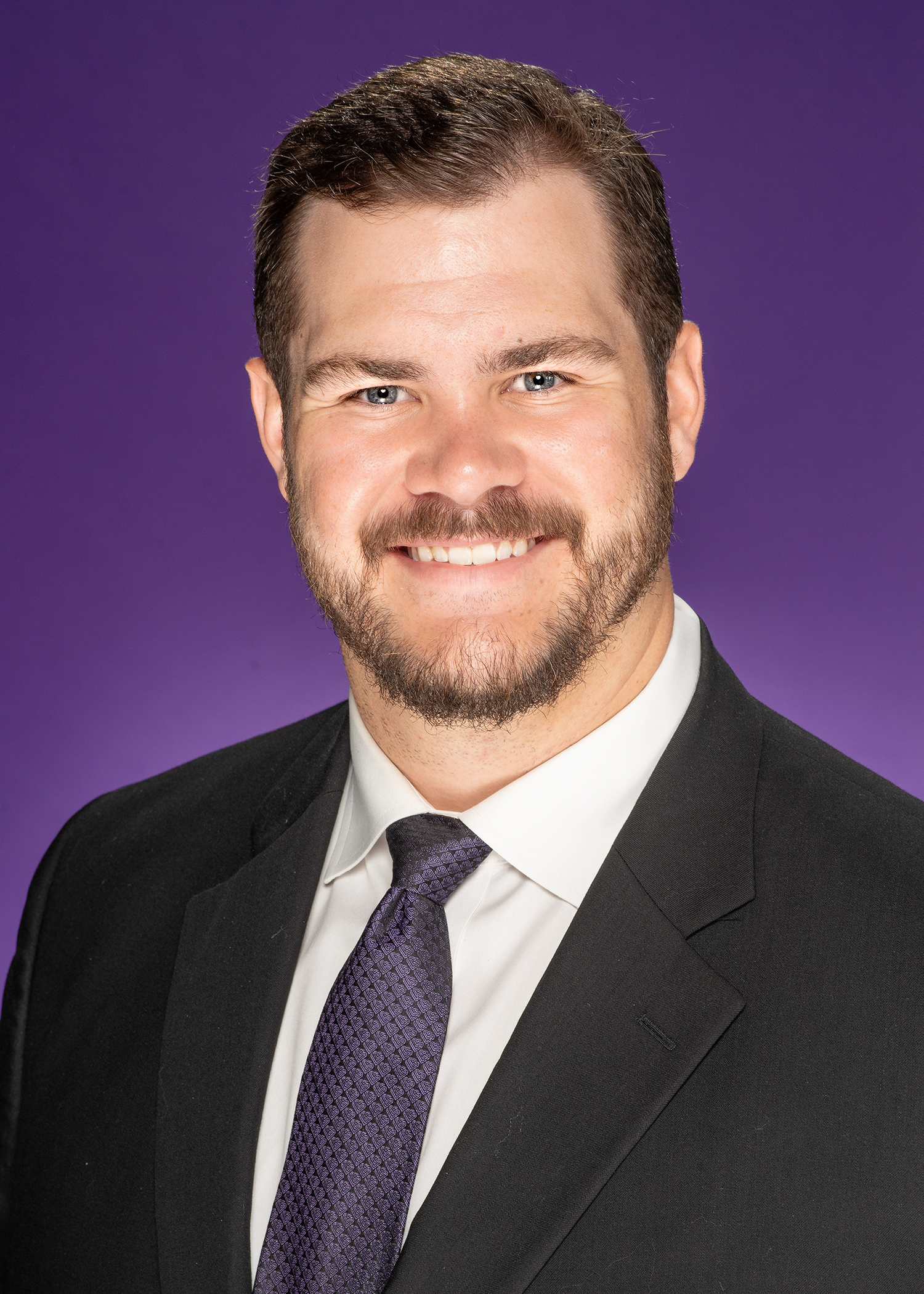
Q: Can you tell us a little bit about your background and what has led up to this moment in your career?
A: I was born and raised in Atlanta, Georgia. My upbringing consisted of challenges in school with a learning disability and a family recovering from addiction. My passion for football brought me to Fort Worth, Texas, and Texas Christian University (TCU). It was in the TCU Football Program that I learned what it means to serve with humility and consistent motives; motives that served my teammates rather than my own advancement, achievement, and agenda.
Consequently, I learned that motives that serve others achieve so much more than I could have ever imagined, and I find that the more service and love I can pour into serving my fellow human beings, the more I drink from an overflowing cup of gratitude and appreciation for others.
The Schweitzer Fellowship is a moment in my career where I get the opportunity to provide a service with a consistent belief in the competency of teens struggling with addiction; the opportunity to invite change through genuine interactions and investments of time. It is an exciting time to be a Fellow—it is an exciting time to serve.
Nathan Guyton
Q: What is the main goal of your project?
A: My project addresses resource disparities for adolescents suffering from substance use disorders by providing a “Preferred Future Program” to patients at Phoenix House Texas Hill A. Feinberg Academy, a non-profit residential treatment facility for teens in Dallas. The program will address the need for skills and knowledge beyond the realm of recovery, providing patients at Phoenix House with experience in goal-setting, autonomy-building, relationship-building, and vocational skills. This project aims to instill self-efficacy and empowerment in these young people to pursue their preferred future with hope and optimism.
Q: What does being an Albert Schweitzer Fellow mean to you?
A: Being an Albert Schweitzer Fellow means the opportunity to follow a calling. Committing to creating a community service project—voluntary, altruistic, and philanthropic—requires the sacrifice of our most valuable asset: time. If I approach the Schweitzer Fellowship as another line on my CV or Resume, my motives are in question.
Being a Schweitzer Fellow means committing to sacrifice for the sake of one’s fellow human beings, for the sake of facilitating empowerment, meaning, and hope in those served.
Nathan Guyton
In my opinion, there is no calling more rewarding nor more challenging than serving with humility and reverence for the competence of the other, for their expertise of their own experience. In doing so, one finds their time well spent and a calling to serve with selfless love answered. As a student in higher education, I am privileged to have access to education and innovative research, and by being a Fellow I can lend this information to my community.
Q: What role do you think philanthropy plays in supporting research and innovation?
A: Philanthropy keeps research honest and innovation effective. Research that is not supported by philanthropy might have motives that are not consistent with the question being answered; motives that promote ideas and agendas rather than people and necessities. In turn, philanthropy’s voluntary nature suggests that its support in research is non-coercive and that those who are invested in the cause voluntarily are more likely to find meaning in the result. The result is where innovation comes into play, and philanthropy spurs innovation by ensuring that it is effective, informed by those in philanthropic need rather than conceived in ideological towers.
The Legacy of the Albert Schweitzer Fellowship
The philosophy that ASF champions aligns with the principles the Foundation has represented since its founding. Both ASF and the Foundation were established during World War II to develop leaders in service and inspire great citizenship through philanthropy. ASF was founded by Helene Bresslau Schweitzer and Albert Schweitzer in 1940. During the same time period, Southwestern Medical Foundation instituted the Ho Din Award.
Through the Ho Din Award, the highest honor bestowed on a graduating medical student from UT Southwestern, the Foundation has supported students who exemplify knowledge, understanding, and compassion. The Fellowship Program personifies these values, instilling a life-long philosophy of compassionate patient care, and paving the way for better health for all.
The Fellowship is open to students in eight local universities, including Baylor University, Southern Methodist University, Texas Christian University, Texas Woman’s University, University of Dallas, University of Texas at Arlington, University of Texas at Dallas, and UT Southwestern Medical Center.
